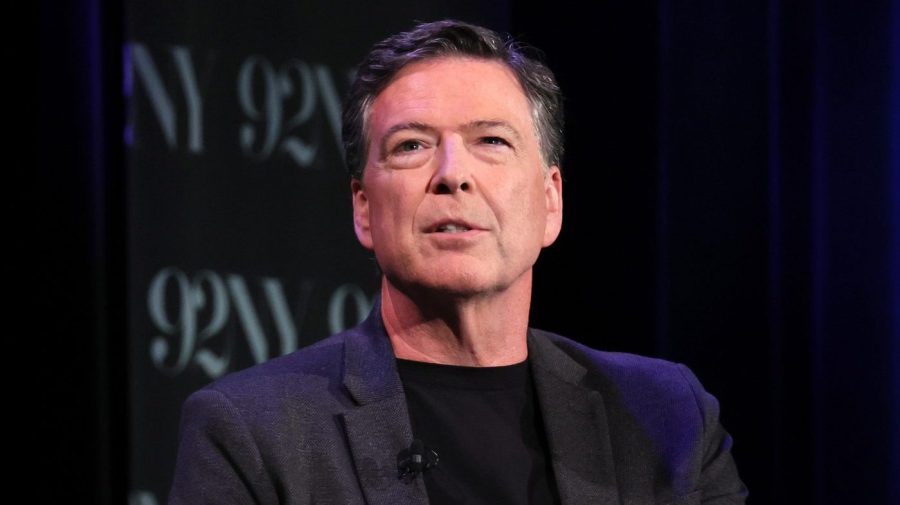Politics
Your phone is a sleeper agent for stalkers and fundamentalist politicians

For years, data brokers have abused Americans’ most personal data in every way possible, selling people’s identifying information to businesses, other individuals and even governments. Now, a string of news stories underscore how the industry’s practices are increasingly endangering women’s safety.
Data brokers are selling the ability to track phones that visit abortion clinics and follow them back across state lines, all the way to their owners’ homes. All it takes for this kind of 24-hour surveillance is a credit card. Given the creepy enthusiasm with which MAGA government officials are inserting themselves into women’s health choices, these tracking tools present a pressing danger for women across the country.
Again and again, MAGA politicians show that they will go to shameful lengths to control women’s bodies.
According to reports by multiple news organizations last week, the data broker Babel Street allowed a private investigator to use its Locate X tool to zero in on abortion clinics and other sensitive locations. While Babel Street advertises its tool as being for government use, in practice this private investigator received a weeklong trial subscription, apparently without any vetting whatsoever.
I’ve spent years probing data broker malfeasance, and unfortunately this news wasn’t surprising. My investigations found that wireless companies let data brokers sell Americans’ location information to bounty hunters, corrupt law enforcement officials and nearly anyone with a credit card. Earlier this year, I revealed that data brokers helped anti-abortion activists send targeted misinformation about abortion to patients at 600 Planned Parenthood clinics across the country. I discovered that automakers sold drivers’ location data and other records to data brokers for pennies. And I successfully pushed utility companies to end their practice of giving away their customers’ personal information to data brokers.
Again and again, MAGA politicians show that they will go to shameful lengths to control women’s bodies. Since the Supreme Court overturned Roe v. Wade, Republicans have moved mountains to restrict the constitutional rights and freedoms of women, making it impossible for many women to live their lives free from government intrusion. They won’t rest until there’s a politician in every bedroom and exam room in America.
But Americans shouldn’t accept a reality where their phones are sleeper agents for stalkers and fundamentalist politicians to track women across the country. Here’s how we can fight back.
First, anyone who cares about women’s rights needs to make themselves heard and vote for candidates who have a track record of protecting those rights. The Dobbs decision to overturn women’s right to choose was the culmination of a decadeslong far-right movement to take over the nation’s courts. Democrats need to respond with the same amount of determination, which is why I introduced the Judicial Modernization and Transparency Act to reform the court system and ensure our judges better represent American values.
When it comes to violations of Americans’ privacy, our country has reached a crisis point.
Second, the executive branch should use the powers it already has to crack down on data brokers’ sleazy behavior. At my urging, the Federal Trade Commission has already started to go after some data brokers that sold location data collected from Americans’ without their consent. The Consumer Financial Protection Bureau is expected to announce its own regulations in the near future to extend financial privacy rules to the industry.
States can also act to protect their residents. Starting in 2026, Californians will be able to sign up for a new data broker registry, where with a single click they can require the brokers to delete their data and stop selling it in the future. The law that created that new privacy control, which will put tens of millions of Americans back in control of their own personal data, was modeled after legislation I wrote. I encourage other states to follow California’s lead.
Third, Congress needs to finally breach the corporate barricade that has blocked a strong consumer privacy law. I’ve authored my own strong privacy bills, the Mind Your Own Business Act and the Banning Surveillance Advertising Act. And in the coming months I plan to release two new bills: one that will protect Americans’ privacy by limiting how much data websites and apps can collect on Americans and preventing data brokers from amassing and selling that data, and another that will protect Americans from being spied on by their smart TVs and set-top boxes and having that data given away or sold to data brokers.
Finally, it’s notable that the vast majority of the phones tracked by Babel Street’s Locate X tool used Google’s Android operating system. Though Apple changed its privacy settings in 2021 to make it far easier for users to stop apps from hoovering up and selling their personal information, Google has failed to do the same. As a result, people who use Android phones are far more vulnerable to surveillance than people who use iPhones. It doesn’t take a genius to understand why the largest online advertising company in the world does not want to make it easy for users to stop tracking by advertising companies and their data broker partners. Google could act immediately to limit data broker access to location information and cut this slimy industry off at the source.
When it comes to violations of Americans’ privacy, our country has reached a crisis point. The repeal of Roe has only heightened the stakes for women who want to make health decisions without a politician in their doctor’s office or a stalker watching their phone. The good news is, there’s no mystery about how to solve this problem. There’s a clear path forward for protecting our privacy and safety that Americans should insist on from our government.

Sen. Ron Wyden
Ron Wyden, Oregon’s senior U.S. senator, is a senior member of the Senate Select Committee on Intelligence.
Politics
Inside the DNC’s money problems
The Democratic National Committee has fallen far behind in the cash race.
After a brutal 2024 election and several months into rebuilding efforts under new party leadership, the DNC wildly trails the Republican National Committee by nearly every fundraising metric. By the end of June, the RNC had $80 million on hand, compared to $15 million for the DNC.
And the gap — nearly twice as large as it was at this stage in Trump’s first presidency — has only grown in recent months, a Blue Light News analysis of campaign finance data found, fueled by several distinct factors.
Major Democratic donors have withheld money this year amid skepticism about the party’s direction, while the small-dollar donors who have long been a source of strength are not growing nearly enough to make up the gap. And the party has quickly churned through what money it has raised in the first half of the year, including spending more than $15 million this year to pay off lingering expenses from Kamala Harris’ presidential campaign.
The DNC has less cash this summer than it did at any point in the last five years.
“I understand that donors want some kind of a reckoning,” said Steve Schale, a Florida-based Democratic strategist. “But I also think that the kind of state party building that I think [DNC Chair] Ken [Martin] wants to do at the DNC is really vital to our success. And so I hope people kind of get over themselves pretty quick.”
The fundraising troubles reflect ongoing questions about the DNC’s direction under Martin, who was elected earlier this year, and comes as the DNC has faced months of bitter infighting. Continued cash shortages could limit the party’s ability to rebuild for a new cycle. And the DNC’s money woes stand in particularly stark contrast to Republicans, who have leveraged President Donald Trump’s fundraising prowess to raise record sums.
“Chair Martin and the DNC have raised more than twice what he had raised at this point in 2017, and our success in cycles thereafter is well documented. Under Ken, grassroots support is strong,” DNC Executive Director Sam Cornale said in a statement. “It’s now time for everyone to get off the sidelines and join the fight. Rebuilding a party is hard — rebuilding relationships and programs take time and will require all hands on deck to meet this moment.”
The DNC’s money woes stand out among major Democratic groups, Blue Light News’s analysis found: Democrats’ House and Senate campaign arms are near financial parity with their Republican counterparts, and several major donors who have withheld funds from the DNC are still giving to those groups.
“Donors see the DNC as rudderless, off message and leaderless. Those are the buzzwords I keep hearing over and over again,” said one Democratic donor adviser, granted anonymity to speak candidly about donors’ approach.
The DNC, on the other hand, touts Democrats’ success in state and local elections this year as proof the party’s investments are paying off. The group also began transferring more funds to state parties this year, and argues it is better-positioned financially than it was at this time in 2017, when it also significantly trailed the Trump-powered RNC.
Some Democrats attribute the slowdown among donors primarily to the need for a break after 2024, and the challenges of being the party out of power. Large donors would rather bump elbows with high-profile figures like a president or House speaker; Democrats cannot put on those kinds of fundraising events right now. The DNC also struggled for cash during Trump’s first presidential term, and that did not stop Democrats from taking back the House in 2018, or winning the presidency in 2020.
Still, the longer the DNC struggles to build up cash, the harder it will be to close that gap heading into the 2026 midterms and beyond. And the fact that other party committees are not seeing the same financial struggles puts more responsibility on Martin and his team to figure out a way to right the ship.
“Obviously, the sooner the DNC and other Democratic-aligned groups can get investment, the better. It’s better for long-term programs on the ground, it’s better to communicate our message early on,” said Maria Cardona, a DNC member and Democratic strategist. “However, I think you’re going to see donors coming into those things because they are starting to see Democrats fighting back, and that’s what they want.”
Just 47 donors gave the maximum contribution to the DNC in the first half of the year, according to the Blue Light News analysis of the party’s filings with the Federal Election Commission. Over the same period in 2021, more than 130 donors gave a maximum contribution. (In 2017, when the party was similarly struggling with large donors, the figure was 37.)
That means dozens of the DNC’s biggest donors from early last cycle have not yet given to it this year — accounting for several million dollars the party group has missed out on this time.
Many of those biggest donors have continued to contribute to other Democratic groups and candidates, indicating they are still aligned with the party and willing to dole out cash — though often not as much, and not to the DNC.
In the run-up to the DNC chair election earlier this year, several large donors publicly preferred Ben Wikler, the Wisconsin Democratic Party chair, to Martin, who long served as the leader of Minnesota’s Democratic-Farmer-Labor Party and also led the Association of State Democratic Parties.
“If Ken [Martin] really wanted to impress donors, he’d go do 20 or 30 salon events with donors and let them yell at him,” said the Democratic donor adviser. “If you take that on the chin, make some changes, then I think we could see some movement. But [he’s] not going to do that.”
With large donors lagging, the DNC has touted record grassroots fundraising from online donors. On ActBlue, the primary Democratic online fundraising platform, the group raised $33.8 million over the first six months of the year, up from $27 million over the same time in 2021.
But the total number of online donors was roughly the same in both periods — suggesting online donors are giving more than they were four years ago, but the group’s donor base has not expanded substantially.
Most DNC donors this year were contributors to Harris’ campaign or the DNC last cycle, according to the Blue Light News analysis. Another 14 percent of donors had no record of donations on ActBlue last cycle, suggesting the DNC is finding new small donors — but not nearly fast enough to make up for the drop-off among large donors.
In fact, the rate of online giving to the DNC has slowed in recent months. The party’s best online fundraising month was March, when it raised $8.6 million on ActBlue from 254,000 donors; in June, the party raised $4.1 million on the platform from 157,000 donors.
And reaching those online donors comes at a cost: The DNC has spent $5.7 million on online fundraising this year, according to its FEC filings. On Meta, which includes Facebook and Instagram, it is one of the largest political spenders this year, according to the platform’s data. The total spent on fundraising expenses so far is nearly as much as the DNC has sent to state parties this year.
Another set of major expenses also stands out for draining the DNC’s coffers: continuing to pay off expenses from Harris’ failed 2024 presidential bid.
Her campaign ended last year’s election with roughly $20 million in unpaid expenses, according to people familiar with its finances, although none of Harris’ campaign committees or affiliates ever officially reported debt. The DNC has spent $15.8 million total on coordinated expenses with the Harris campaign this year, including $1.3 million in June. A party spokesperson declined to comment on future campaign-related payments.
Elena Schneider contributed to this report.
Politics
Conservatives mock Comey over Taylor Swift video

Conservatives are mocking former FBI Director James Comey over a post he made on his Substack on Sunday in which he discussed his admiration for pop superstar Taylor Swift. The post features a video of Comey calling Swift “a truly inspirational public figure” and noting her recent appearance on NFL stars’ Jason and Travis Kelce’s…
Read More
Politics
Trump criticizes ‘fake news,’ Democrat, Zelensky in series of posts

President Trump late Sunday in a pair of posts on Truth Social ripped the media and a prominent Democrat for criticisms of his summit on Friday with Russian President Vladimir Putin. Trump met with Putin in Alaska, and will meet Monday with Ukraine President Volodymyr Zelensky as he seeks to find a way to end…
Read More
-
Uncategorized9 months ago
Bob Good to step down as Freedom Caucus chair this week
-

 The Josh Fourrier Show9 months ago
The Josh Fourrier Show9 months agoDOOMSDAY: Trump won, now what?
-

 Politics9 months ago
Politics9 months agoWhat 7 political experts will be watching at Tuesday’s debate
-

 Politics9 months ago
Politics9 months agoHow Republicans could foil Harris’ Supreme Court plans if she’s elected
-
Economy9 months ago
Fed moves to protect weakening job market with bold rate cut
-

 Politics9 months ago
Politics9 months agoRFK Jr.’s bid to take himself off swing state ballots may scramble mail-in voting
-

 Politics6 months ago
Politics6 months agoFormer ‘Squad’ members launching ‘Bowman and Bush’ YouTube show
-

 The Dictatorship6 months ago
The Dictatorship6 months agoPete Hegseth’s tenure at the Pentagon goes from bad to worse










